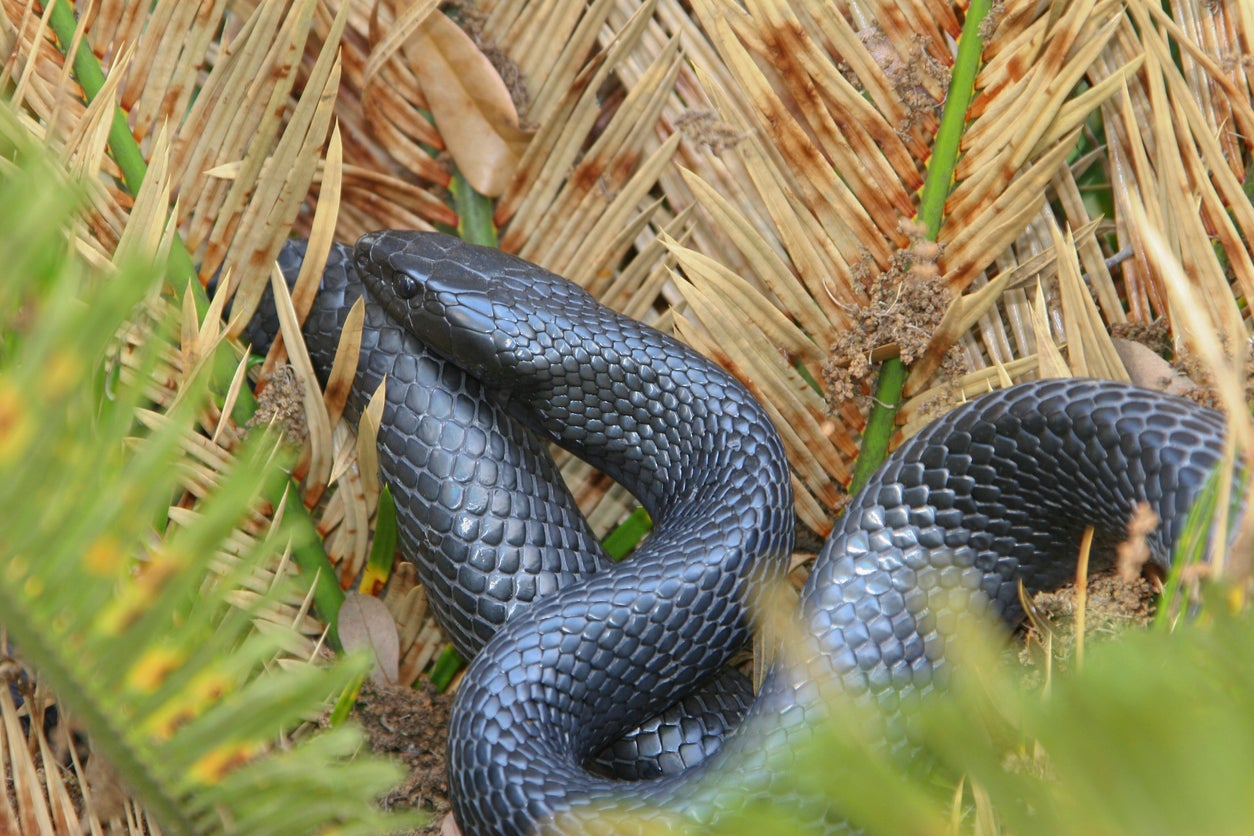Rare Eastern indigo snake that can grow to 9ft found in Alabama
Habitat loss was one of the main reasons for the Eastern indigo snake’s decline in the middle of the 20th century

An Eastern indigo snake has been spotted in Alabama for the second time in 60 years.
The news comes after a successful conservation programme to reintroduce the native reptiles to the state, as the species went extinct here in the 1950s.
“Reintroducing a species to its native range is a daunting task, and we celebrate each step of its success,” said Alabama Wildlife and Freshwater Fisheries Division on Facebook, after the discovery.
“The snake found yesterday indicates the project is resulting in some thriving and reproducing indigos, just what we wanted!”
Habitat loss was one of the main reasons for the Eastern indigo snake’s decline in the middle of the 20th century, but the snake species plays a big part in the natural ecosystem. Wiping out an “apex predator” has a domino effect on other species, according to wildlife experts.
Conservationists bought the species from Georgia and reintroduced it to the area in 2006.
The recent sighting shows the snake re-introduction has worked.
“It is an excellent indicator that the snakes that we have released, which were born into captivity, have been able to adapt to the wild, are functioning as wild snakes, and are reproducing,” Jim Godwin, an animal biologist with the Alabama Natural Heritage Program told CNN.
The carnivorous Eastern indigo snake species is native to the southeastern United States and is non-venomous.
It’s considered the longest snake in the US, growing up to 2.8m (9.2 ft) in length.
It can be recognised by its blue-black dorsal and lateral scales, some have red, orange or tan colours around the chin and throat. It prefers flatwoods, stream bottoms, cane fields, high ground with sandy soils and riparian areas with shrubs, scrub, grasses, and small trees.
Join our commenting forum
Join thought-provoking conversations, follow other Independent readers and see their replies
Comments
Bookmark popover
Removed from bookmarks